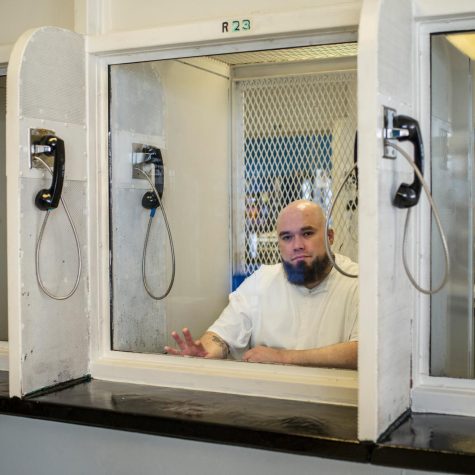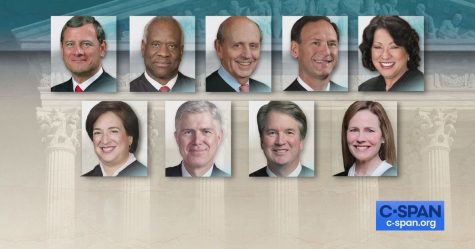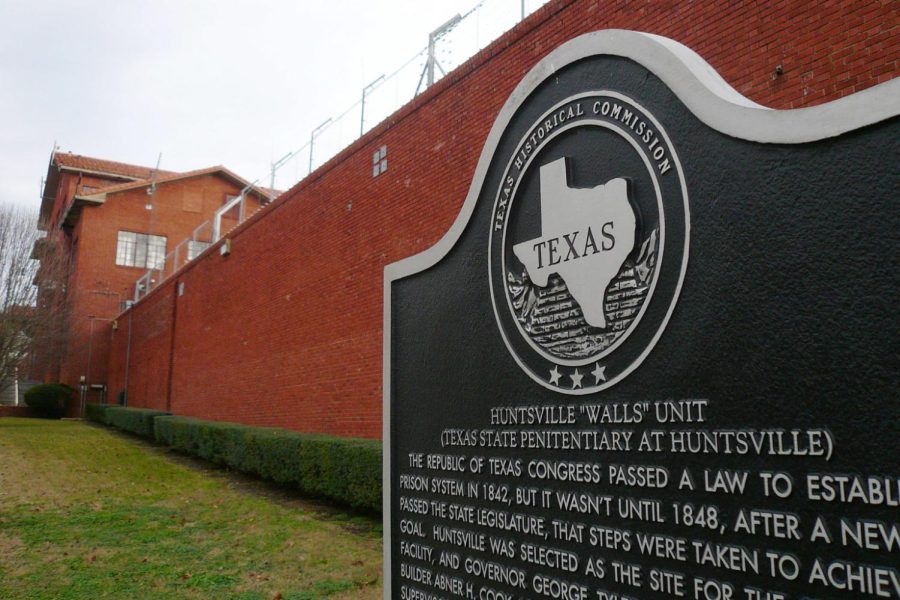Ramirez v. Collier: The Question of How Far Religious Freedoms Extend to Death Row Inmates
Photo taken from Harvard Law Today
The Huntsville “Walls” Unit in Texas contains the state’s execution chambers. John Ramirez was sentenced to execution by lethal injection in 2008 and will remain in Texas’ Huntsville state prison until his execution date.
On Nov. 9, the Supreme Court of the United States heard Ramirez v. Collier, a case surrounding the issue of religious liberties in the criminal justice system.
In 2020, John Ramirez, a death row inmate, filed a spiritual advisory claim against the state of Texas. This action extended his date of execution to Sept. 8, 2021, but in August, just a month before his scheduled execution, Ramirez filed another spiritual advisory claim.
Ramirez’s second claim requested that a pastor be permitted to pray out loud and physically touch him while his execution sentence was carried out, citing the Religious Land Use and Institutionalized Persons Act of 2000 to support his requests.
His claim was denied by the State of Texas. After a series of motions that postponed his execution, Ramirez took emergency action on Sept. 7 of this year. His emergency appeal to the US Supreme Court argued that Texas’ denial of his religious appeals violated his constitutional rights along with religious rights afforded to inmates. The State of Texas argued that this was not a violation of his religion but also that it did not accommodate all of his religious needs.

On Sept. 8, the Supreme Court granted Ramirez a stay of execution, and a writ of certiorari transferring his case from the lower courts to the Supreme Court and added his case to their 2021-2022 term docket.
On Nov. 9, the justices of the Supreme Court began their questioning of Ramirez’s lawyer, inquiring into whether Ramirez had always claimed that he should be allowed these religious rights. Justice Clarence Thomas called into question whether Ramirez’s requests were simply last-minute complaints aimed at gaming the court system and extending the date of his execution.
Seth Kretzer, the attorney arguing for Ramirez’s case made the argument that Ramirez had always filed grievances towards the state within days of learning of new Texas policy that prohibited any touching in the execution chamber.
Kretzer instead pointed out that it was in fact the state that was extending this process, waiting weeks to address these grievances and presenting Ramirez with a new policy at the last minute.
Kretzer continued on to argue that the Religious Land Use and Institutionalized Persons Act is designed to take up matters of religious exercise on an inmate by inmate basis.
Chief Justice Kavanaugh brought up the issue that the state of Texas had raised, that if one case is allowed special religious freedoms that will open the door for other inmates to stretch the limits of this act one by one.
He continued on to place forth the opinion of the state. They put in place the no-touch policy in order to reduce the chances of anything going wrong in the execution chamber to zero. An outside pastor coming into the chamber seems like too great a risk.
Kretzer defended his claims by citing a statistic that no spiritual advisor had ever interrupted an execution proceeding in the history of the United States.
Despite Kretzer’s variety of arguments, justices Thomas, Alito, and Kavanaugh continued questioning the sincerity of Ramirez’s religious appeals. The three justices continuously came back to this line of questioning, seeming to believe that this was simply a way to “game the system.”
Each of the two attorneys was awarded approximately 30 minutes each to present their cases, and attorney Eric Feigin was questioned similarly in his time.
Similar to Kretzer, Feigin was questioned on whether Ramirez’s claims were sincere and valid, or just a way to extend the date of his execution and work around the system.
Feigin argued that it was very possible that Ramirez had filed his religious pleas with alternative motives, and that under RLUIPA, there are many incentives to falsify claims based on religious beliefs.
Feigin continued on to argue that in order to have zero risk of mistake in the execution chamber, there should be no spiritual advisor allowed in at the time of execution. Texas’s execution chamber in particular is much smaller than that of other states, and this was used as yet another reason that the addition of another person would increase risk.
Texas’s solicitor general, Judd Stone, was the final person to argue before the court. He reiterated many of the points made by Feigin, claiming that the allowance of spiritual advisors in the execution increases risk.

He argued that any interference could lead to both intolerable pains for the inmate as well suffering for the family of the inmate. The safest option then would be to limit the number of people in the chamber as much as possible.
The Supreme Court will not release their decision on this case for a number of months, but these oral arguments marked the last of the case.
The question of whether the reduction of risk or the protection of certain religious rights would be protected became the main issue argued during the Nov. 9 oral arguments.
Sage Creek High School’s AP United States history teacher Leif Peterson commented on the history of religious freedoms in America, and how oftentimes, the constitution can be interpreted in a way that can limit some religious rights.
“There are gonna be laws that are passed from the founding of the government up until the present that are restrictive [of religious freedoms] in different cases and towards different people such as [people] convicted of a crime,” Peterson said.
Journalist Matt Ford of The New Republic claims that this case may turn out differently than cases surrounding religious freedoms usually do.
“When someone brings a religion-related claim before the [Supreme Court,] they almost always win,” Ford said.
Despite this trend, he believes that the justices will shift away from their usual priorities when it comes to this case.
“[They will focus more on] ensuring that the state can conveniently administer lethal injections to prisoners whenever and however it desires.”
News site Slate’s journalist Mark Joseph Stern Holds a similar viewpoint. He believes that the Supreme Court justices are treating this case differently than other religion-based cases which are often in favor of the death penalty’s conservation.
“In recent history, the Supreme Court has emphatically refused to apply the slightest scrutiny to religious objections,” Stern said.
The outcome of this case is hard to predict, as both arguments maintain a solid foundation. The case’s potential to set a precedent adds even greater uncertainty to the direction that the justices will lean, and calls into question what exactly the justices will focus on when making their decisions.



Owen ◊ Nov 10, 2021 at 10:14 pm
Yeeeaahhh Lulu!!!!